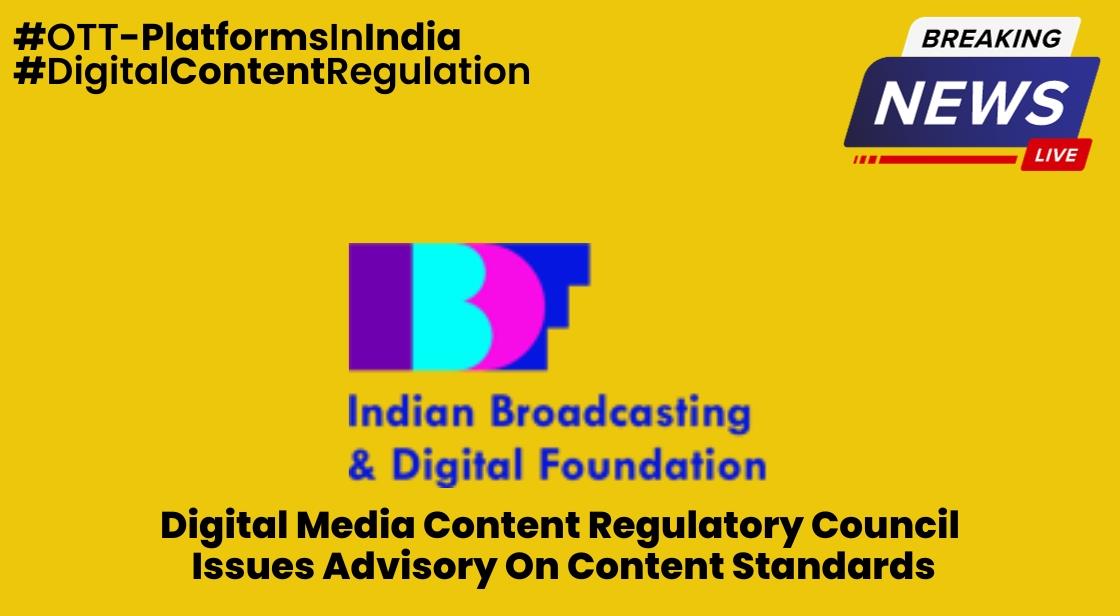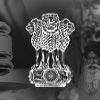Digital Media Content Regulatory Council Issues Advisory on Content Standards

News Synopsis
DMCRC's Advisory on Content Standards
The Digital Media Content Regulatory Council (DMCRC), established as a secondary self-regulatory body under the Indian Broadcasting and Digital Foundation (IBDF), has emphasized the importance of ensuring that OTT platforms refrain from presenting explicit or indecent content.
The Digital Media Content Regulatory Council (DMCRC) has issued an advisory to OTT platforms, asking them to avoid obscene and vulgar content. The advisory comes in light of the recent concern expressed by the Ministry of Information and Broadcasting about delinquent platforms resorting to projection of excessive vulgarity, obscenity and profanity in their content.
The DMCRC has advised OTT platforms to adhere to the self-regulatory framework and keep India's diverse society and culture in mind while producing content. The self-regulatory framework includes the Code of Ethics, which lays down guidelines for content creators on a variety of issues, including obscenity, violence, and hate speech.
Self-Regulation for OTT Platforms
For over two years, DMCRC has emphasized the significance of self-regulation among Over-The-Top (OTT) platforms operating in India. This advisory serves as a reminder that the digital media industry is expected to follow a self-regulatory framework.
Concerns Raised by the Ministry of Information and Broadcasting
Recent developments have prompted the Ministry of Information and Broadcasting to express concern about certain OTT platforms projecting excessive vulgarity, obscenity, and profanity in their content. DMCRC's response reflects a commitment to address these concerns.
Promoting Responsible Content Creation
DMCRC underscores the importance of consistent adherence to the self-regulatory framework while being mindful of India's diverse society and culture. OTT platforms are encouraged to exercise creative freedom responsibly, ensuring due diligence in content creation.
DMCRC's Advisory Highlights
In response to the ministry's request to reinforce self-regulation,Digital Media Content Regulatory Council (DMCRC) advises member OCCPs (Online Curated Content Providers) to:
Key Advisory Points
-
Continue exercising due restraint and responsibility during content creation.
-
Engage in self-introspection to strengthen the framework and overall functioning of OTT platforms.
-
Avoid unnecessary vulgarity and abusive content without proper justification.
-
Conduct frequent meetings with content creators and production houses to raise awareness and sensitize them to content standards.
-
Ensure that content is in compliance with the self-regulation framework, including the Code of Ethics.
-
Establish accessible systems for lodging content-related grievances.
-
Develop access controls that empower consumers to make informed content choices.
-
Increase awareness of available content control options.
India's Evolving Regulatory Landscape
In 2021, the Indian government introduced the Information Technology (Intermediary Guidelines and Digital Media Ethics Code) Rules 2021, establishing a three-tier regulatory framework for digital news media and OTT video streaming platforms.
Three-Tier Regulatory Framework
The regulatory framework comprises:
-
Self-regulation by the platform itself.
-
Self-regulation by the self-regulatory bodies of content publishers.
-
An oversight mechanism by the Centre.
Past Government Actions
The Indian government has taken action against certain web originals, including Mirzapur and Tandav on Amazon Prime Video, for content deemed offensive. Local platforms like ALTBalaji and Ullu have also faced scrutiny for content considered obscene.
DMCRC's advisory signifies ongoing efforts to balance creative freedom with responsible content creation in India's digital media landscape.
Challenges and Opportunities
The self-regulatory framework for OTT platforms in India faces a number of challenges. One challenge is that the self-regulatory bodies are still in their early stages of development and do not have a lot of experience. Another challenge is that the self-regulatory framework is voluntary, and there are no penalties for platforms that fail to comply with it.
Despite these challenges, there are also a number of opportunities for the self-regulatory framework to succeed. One opportunity is that the self-regulatory bodies have the potential to be more responsive to the needs of the Indian public than the government. Another opportunity is that the self-regulatory framework can help to promote innovation and creativity in the OTT industry.
Conclusion
The DMCRC's advisory to OTT platforms is a welcome move, but it remains to be seen how effectively the self-regulatory framework will be implemented. The self-regulatory framework faces a number of challenges, but it also presents a number of opportunities. The success of the self-regulatory framework will depend on the ability of the self-regulatory bodies to be effective and responsive to the needs of the Indian public.
Relevant and Latest Facts:
-
The Digital Media Content Regulatory Council (DMCRC) is a self-regulatory body set up by the Indian Broadcasting and Digital Foundation (IBDF) to oversee the content of OTT platforms in India.
-
The DMCRC has issued an advisory to OTT platforms, asking them to avoid obscene and vulgar content.
-
The advisory comes in light of the recent concern expressed by the Ministry of Information and Broadcasting about delinquent platforms resorting to projection of excessive vulgarity, obscenity and profanity in their content.
-
The DMCRC has advised OTT platforms to adhere to the self-regulatory framework and keep India's diverse society and culture in mind while producing content.
-
The government has cracked down on web originals like Mirzapur and Tandav for offensive content in the past.
Overall, the DMCRC's advisory is a reminder to OTT platforms that they need to be mindful of the content they produce and ensure that it is in line with India's cultural values and sensitivities.
You May Like









